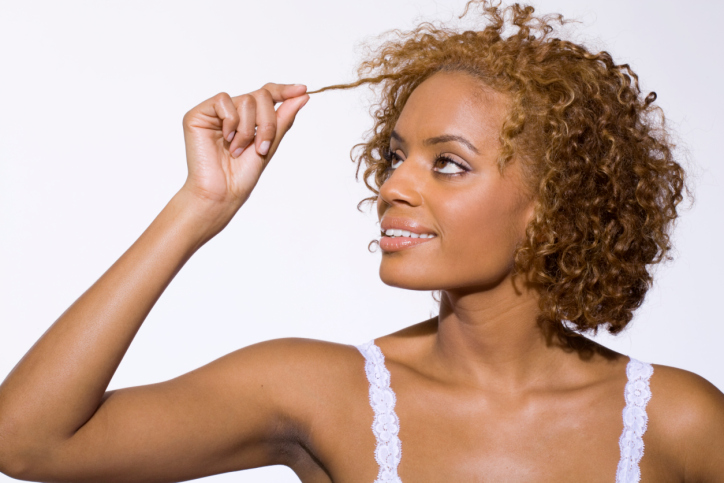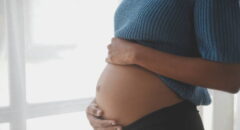 Prenatal vitamins are essential for both mothers and their babies. Not only are they vital for baby’s development, but ingredients such as calcium, folic acid, and iron (to name a few), protect mom against pre-eclampsia, boost fertility, and supports a healthy immune system, respectively. You may even be familiar with the widely reported benefits of helping to grow long hair and nails, and even provide the body with an added dose of nutrients. Only the truth is, if you’re taking these supplements and aren’t pregnant, you may end up with the total opposite of what you intended.
Prenatal vitamins are essential for both mothers and their babies. Not only are they vital for baby’s development, but ingredients such as calcium, folic acid, and iron (to name a few), protect mom against pre-eclampsia, boost fertility, and supports a healthy immune system, respectively. You may even be familiar with the widely reported benefits of helping to grow long hair and nails, and even provide the body with an added dose of nutrients. Only the truth is, if you’re taking these supplements and aren’t pregnant, you may end up with the total opposite of what you intended.
“Many women who sing the praises of prenatal vitamins during their pregnancies are staunch advocates that purport that taking these magic pills, whether pregnant or not, gives them an extra added dose of nutrients that their body needs, a thick mane of healthier, shinier hair and diamond-strong nails that grow in perpetuity,” Dr. Renee Allen, a leading OBGYN out of Snellville, Georgia, tells BlackDoctor.org.
Unfortunately, “if you're not pregnant, not planning to become pregnant or are not breastfeeding, high levels of certain nutrients contained within prenatal vitamins, over a long period of time may actually be more harmful than helpful.”
Here’s why: “Pregnant women need almost twice as much iron and folic acid as the average non-pregnant or non-lactating woman, which is reflected in the contents of the typical prenatal vitamin,” explains Dr. Allen, adding that, “prenatal vitamins are geared to make up the common nutritional deficiencies a pregnant or lactating woman could have. But these vitamins are not really intended for women who aren’t expecting or lactating.”
For example, “getting too much iron routinely on a daily basis, can overtime, be toxic because it can build up in your body, causing constipation, nausea, vomiting, diarrhea and, in severe cases, possibly death,” she continued.
Other issues that can arise causing deleterious effects include:
Anemia and hair loss
“While prenatal vitamins tend to get a lot of credit for a woman's thick pregnancy mane, the hair growth spurt during pregnancy is actually due to hormonal differences that cause hair and nails to grow faster because of cycling longer in their growth phase and are shedding less hair on a daily basis,” says Dr. Allen. This is due to the “extra circulating estrogen and progesterone” during pregnancy. So, reaching for prenatal supplements as a quick fix to boost hair growth “may not have the results you imagine.”
Though uncommon, getting too much folic acid or iron, can mask certain serious conditions. According to our expert, “getting too much folic acid by taking prenatal supplements can mask the symptoms of vitamin B-12 deficiency anemia.” Anemia is a “common cause of hair loss in women” and vitamin B-12 deficiency can lead to serious harmful effects like anemia, alopecia but also fatigue, breathlessness, numbness, poor balance, and memory trouble. “A delay diagnosis and treatment of this deficiency over time can cause permanent neurological damage.”
Liver damage
Meanwhile, “it’s important to be mindful of any issues with your liver, since iron in very large doses can be toxic to the liver and cause liver damage,” she added.
Osteoporosis
“One harm could be that there is a false sense of security of a person thinking that they are obtaining all of their nutrients from prenatal vitamins,” says Dr. Allen. For example, “prenatal vitamins do not have enough vitamin D or calcium to meet our daily requirements.” Say you rely on them to meet your daily needs but aren’t getting enough? In turn, you’re “raising your risk of osteoporosis and other health problems.”
“On the other hand, prenatal vitamins may contain more vitamin A than the average woman needs on a daily basis as supplementation. Excess amounts of nutrients like vitamin A taken from synthetic vitamins could be toxic to a person’s liver,” in addition to increasing the risk of cancer, Dr. Allen explained.
The Big Takeaway
“If you’re considering taking prenatal vitamins and aren’t pregnant, evaluate your diet first,” suggests Dr. Allen.
“Most people who eat a balanced diet, can get all the nutrients they require from food and do not need to take a multivitamin. A balanced diet includes lean proteins, low-fat dairy sources, whole grains, and plenty of fruits and veggies,” she explained. “For these reasons, most non-pregnant women should skip prenatal vitamins unless their doctors tell them otherwise.”









